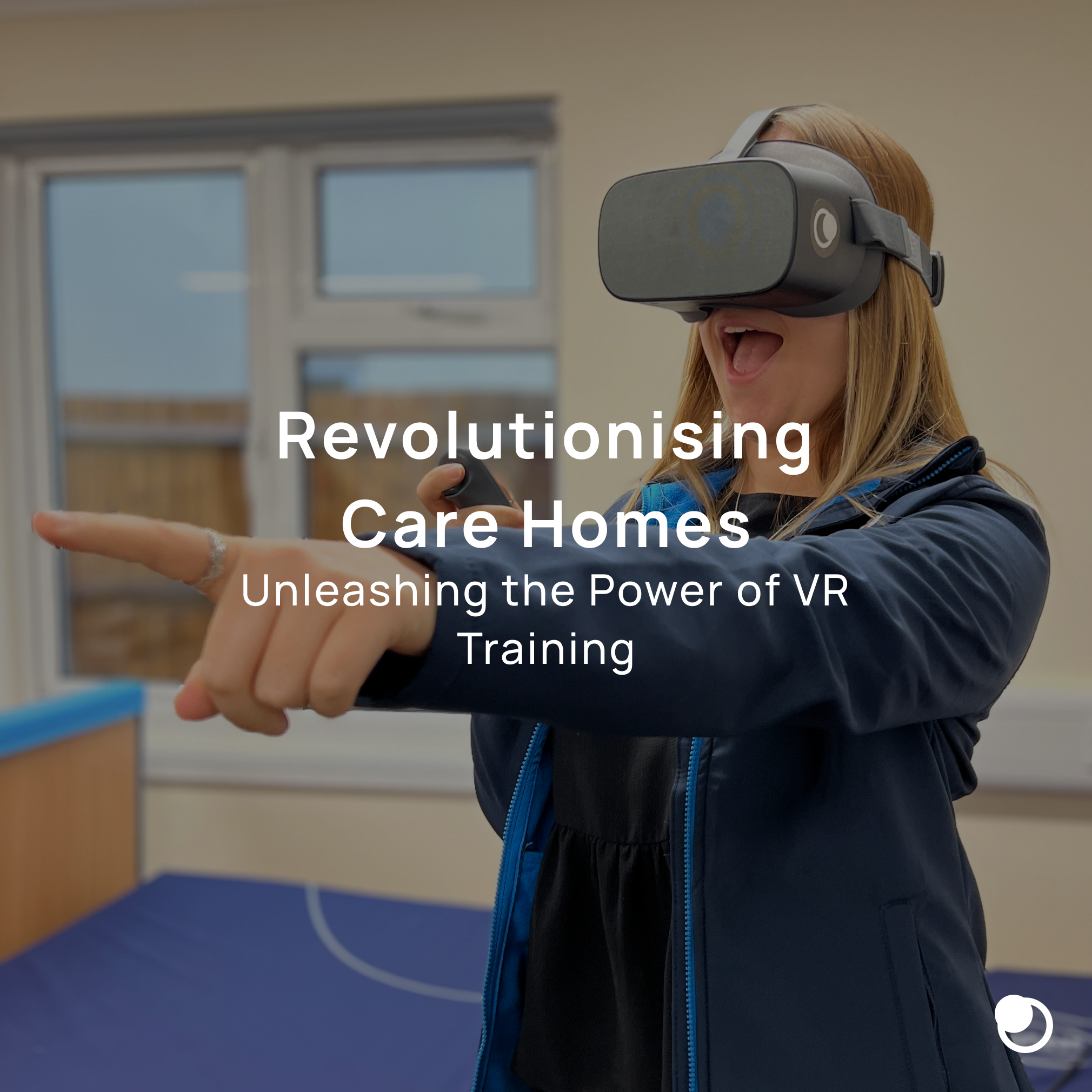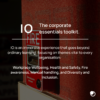
Enhancing Empathy and Understanding
Empathy plays a crucial role in providing high-quality care, especially for individuals living with dementia. VR training in care homes offers an immersive experience that allows caregivers and staff to gain a deeper understanding of what it feels like to have dementia. By simulating the cognitive and perceptual challenges faced by dementia patients, VR training fosters empathy and enhances the ability to communicate and engage effectively with them. ELARA, our VR training app, enables caregivers to step into the shoes of a real-time learner, promoting compassionate and person-centred care.

MOONHUB ELARA
MOONHUB aims to transform learning with Virtual Reality, empowering trainees and providing state-of-the-art training experiences and cost-effective solutions co-created with partners for our partners. The pandemic has shone a spotlight on social care, highlighting its strength and resilience during the most troubling of times. Recognising the importance of social care and the need for investment and development in the future, MOONHUB has developed ELARA, a holistic, low-risk, highly immersive virtual reality healthcare suite focused on care delivery. Our Dementia Care VR training immerses learners in real-life situations that mirror the challenges of social care boosting technical knowledge and heightening emotional soft skills. The Dementia Care course is designed with a person-centred approach, endorsed by Skills For Care and certified by the CPD.
Our stats don’t lie

Safe and Realistic Learning Environments
Traditional training methods often struggle to replicate real-life scenarios in care homes. However, VR training addresses this limitation by creating safe and realistic learning environments. Caregivers can navigate through virtual representations of care home settings, such as bedrooms, dining areas, and communal spaces while encountering situations that require critical decision-making. This immersive experience helps them develop their problem-solving skills, crisis management abilities, and emergency response strategies. By practising in a risk-free virtual environment, caregivers can hone their skills and build confidence, leading to improved performance in real-life situations.
Amplifying Knowledge Retention
Another significant benefit of VR training is its ability to enhance knowledge retention. Traditional training methods often rely on passive learning, such as reading materials or watching presentations, which can lead to limited retention of information. However, VR training provides an immersive and interactive experience that stimulates multiple senses and engages learners actively. This multisensory engagement has been shown to improve knowledge retention significantly. By allowing individuals to experience scenarios firsthand and make decisions in a realistic environment, VR training creates strong neural connections and enhances memory recall. This active participation and experiential learning foster a deeper understanding of the subject matter, resulting in improved retention of knowledge and skills over time. As a result, VR training offers a powerful tool for care homes to ensure that their staff retains vital information and can apply it effectively in their caregiving roles.
VR training is transforming care homes by empowering caregivers and staff with immersive learning experiences. Our ELARA app, exemplifies the potential of VR training in dementia care, fostering empathy, improving communication, and enhancing skills development. As technology continues to advance, the benefits of VR in care homes are likely to expand even further, revolutionising the way we approach training and care provision. By embracing these innovative solutions, care homes can strive towards providing the highest quality of care for their residents, leading to improved well-being and enhanced overall outcomes.
To learn more about our ELARA Case Study click here.








